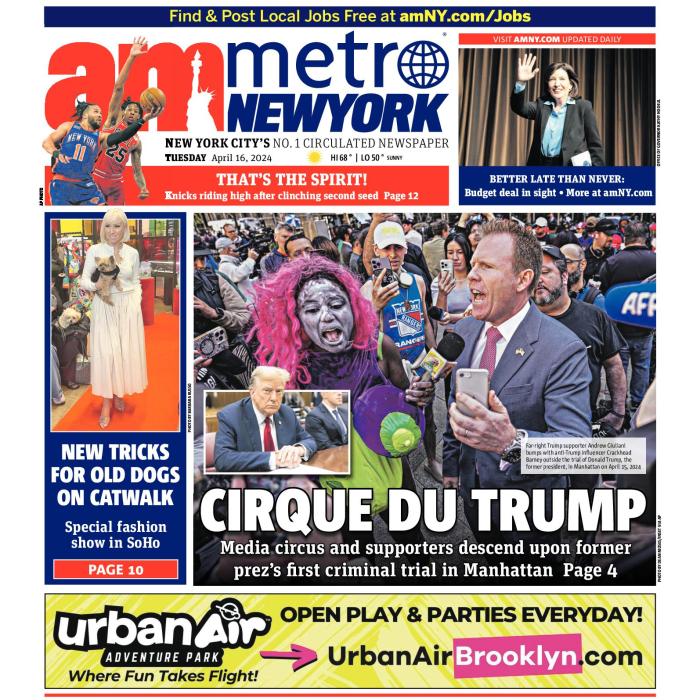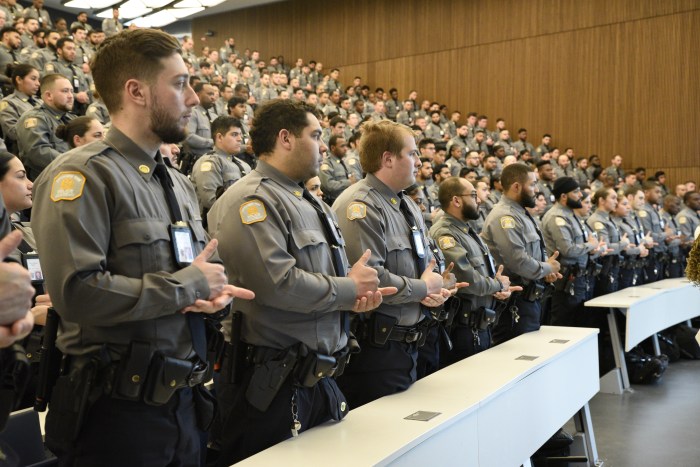There may be Mets fans in Mudville marveling that a year ago the Amazin’s were still playing into November. Yankees fans may pinch themselves at the strange thought of missing postseason baseball for yet another year.
Unfortunately, that’s the extent of New York City’s connection to the World Series that begins Tuesday night between the Cleveland Indians and Chicago Cubs, who are on the verge of fully eradicating their billy goat curse. That is, unless you count former Yankee relievers, or former New York Sen. Hillary Clinton’s relationship with the Chicago Cubs, which awaits the full WikiLeaks treatment.
But New York may now be home to one of the last great passions in baseball, assuming the Cubs faithful get their due: The enduring, nearly curse-like anger of Brooklyn Dodgers fans after the team deserted the borough in 1957, a moment borough historian Ron Schweiger says was “like a void left in you.” Or “a member of the family who left you forever.”
A passion for Brooklyn baseball that runs deep
Schweiger was 12 when the Dodgers skipped town to Los Angeles, and like many, his loyalties to the team didn’t travel across the continent. So he was more than happy to see the Cubs defeat the L.A. Dodgers last week to take the pennant.
Loyalty to the once and future Brooklyn team runs deep.
Growing up in Gravesend, he says he went to Ebbets Field as a small child upward of 15 times. His favorite player was Jackie Robinson; he and his brother taught themselves to switch-hit by studying the stance of lefty great Duke Snider.
He was at the prime of fan-dom when the Dodgers finally won the World Series in 1955. Two years later, the team’s owner, Walter O’Malley, had decided to take the club to Los Angeles after negotiations with NYC to build a new stadium fell through.
Like many of his peers, Schweiger hated O’Malley’s treachery. In a 2007 HBO documentary, he recounted the great post-war borough morality test: If you were in a room with Adolf Hitler, Joseph Stalin, and Walter O’Malley, armed only with two bullets, what would you do? Shoot O’Malley twice.
Versions of that catechism have been around for decades, including from Brooklyn great Pete Hamill. But Schweiger says he first heard this version of it during jury duty a couple years before the documentary aired. The jury had been sequestered for a night at a hotel in the city, and Schweiger ended up sharing a room with a fellow Brooklynite. “You’re stuck in a room for the night, you get to talking,” he says. Naturally, conversation turned to Dodgerdom. The man told Schweiger this bon mot, and then disappeared. “I don’t remember his name or what he looked like,” Schweiger says.
Only the O’Malley curse remains.
Yes, this was a long time ago. Yes, it still hurts.
In recent years, a revisionist view of the matter has shifted some of the blame from the Dodgers owner to often-blameworthy master builder Robert Moses, who molded the city’s construction for decades.
O’Malley had wanted a new stadium in Brooklyn to replace Ebbets Field, which was small and shabby with little parking and obstructed views. He petitioned for a state-of-the-art domed stadium near the intersection of Atlantic and Flatbush avenues, designed by famed architect Buckminster Fuller.
Moses was offering a site in Queens with better highway access. O’Malley didn’t bite.
So the Dodgers left and the Mets were resurrected as a then-poor substitute. Nostalgia — both real and imagined — for the old team as a shining exemplar of the old Brooklyn multiplied as white residents left the city for Long Island (only a short ride on the train away from Atlantic Avenue, Schweiger points out, which would have kept those far-flung Dodgers fans close to home).
That nostalgia deepened as the story of Jackie Robinson turned into the power struggles of the Civil Rights movement and beyond, and those suburban Dodgers fans looked on Brooklyn from afar — defunded and virtually segregated, bereft of the manufacturing and other jobs that had made it a haven, struck by drugs and rising crime rates.
The Los Angeles team did well even as Brooklyn went sports-team less for years. The anger toward O’Malley endured even as Moses began to absorb some of the blame; even as the borough grew in fame and fortune once again; even as the nearby Mets had some good years.
The curse of a sportless borough continued until four years ago, when the Brooklyn Nets took up residency right next to the spot where O’Malley had wanted his dome.
Of course, the Nets’ performance recently might be a proving of the curse rather than a discontinuation of it. And the New York Islanders, who haven’t won a Stanley Cup since 1984, don’t help matters either.

















